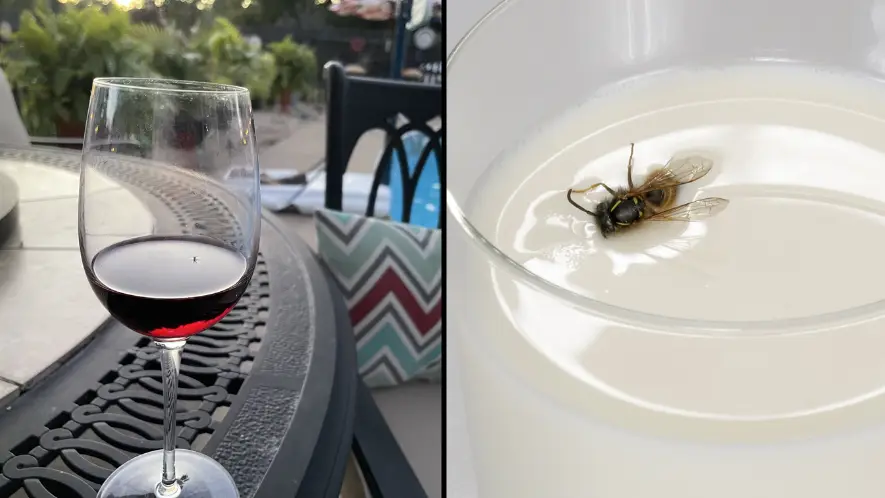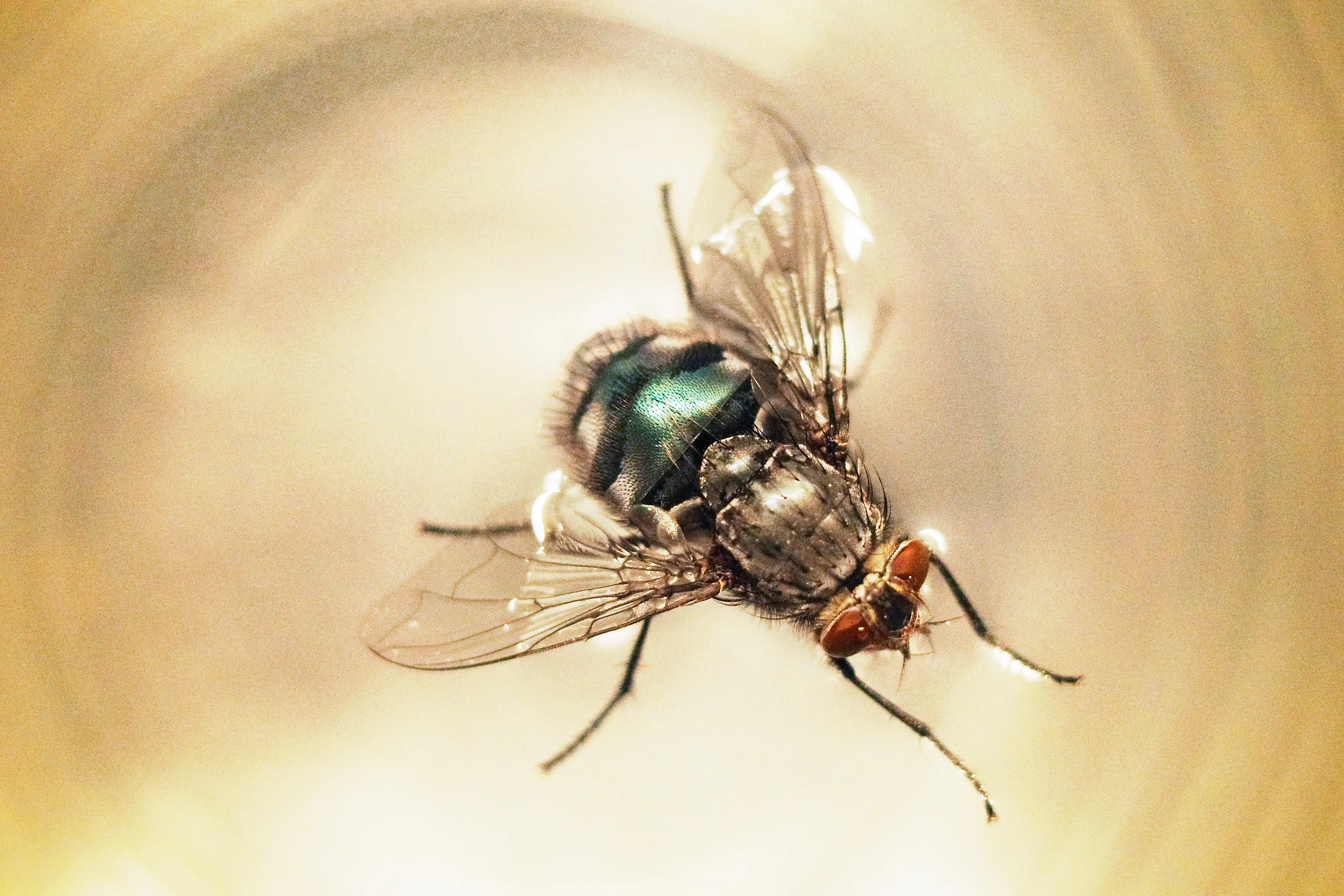
After the longest wait, the weather’s looking up and it seems like a sunny British May is finally in full swing.
And obviously, no warm double-bank holiday month is complete without you and your mates sitting in a beer garden or sharing a picnic in the park or a family BBQ.
But as you’re sipping on your al fresco refreshment that you’ve poured perfectly over ice, it can all come crushing down thanks to a pesky little fly.
Honestly it seems like a nightmare when you’ve just put your feet down and then look into your cup to see a fly has fallen in.
Advert
Then brings in the absolute dilemma of do you go pour it out and make a fresh one, or do you just drink it anyway? Well, ahead of a summer of drinks in the sun, a scientist has had their say on whether or not you can sip a tipple a fly’s landed in.

A senior lecturer in clinical microbiology, Primrose Freestone, wrote in The Conversation that fruit flies eat food that is decaying.
“They inhabit rubbish bins, compost heaps or any place where food is present, including drains,” she explained. “Rotting food is rich in germs, any of which a fly can pick up on their body and transfer to where it next lands.”
These bacteria could include the likes of E coli, Listeria, Shigella and Salmonella.
However, if you’re drinking a glass of wine, it could essentially counteract the issue. Wine tends to have between eight and 14 percent ethanol, and has a pH around four or five.
“Several laboratory studies have also shown that the combined effects of wine alcohol and organic acids, such as malic acid, can prevent the growth of E coli and Salmonella,” Freestone said.

“Whether the germs transmitted by the fruit fly into the wine can cause an infection depends on the number of bacteria deposited (the “infectious dose”) and how metabolically fit the germs are.”
She describes all types of wine as ‘naturally antibacterial’ so germs in wine ‘are likely to become damaged’. This suggest that germs deposited into the wine by those pesky flies aren’t so likely to cause you an infection ‘as they are too damaged’.
Plus, if they’re not damaged by wine, any germs still alive from the fly will then face your stomach’s highly acidic fluids.
Stomach acid can kill many food poisoning germs and to get to your health they’d need to overcome ‘deadly barriers’ like ‘digestive enzymes, entrapping mucus and the ever-watchful immune system defences’.
So, unless you’re totally germ-phobic, Freestone writes: “I would suggest removing the fly and drinking the wine. If you want the extra protein, you could even swallow the fly.”
Topics: Science, Health, Food And Drink, Alcohol